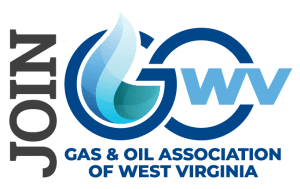Buying low and selling high. It’s the commonsense strategy that strongly influences business and personal investment decisions aimed to maximize the value of our economic activities.
For example, investing in a down stock market offers the long-term investor an opportunity for upside gains because the investor decides to buy assets with lower valuations. A similar analogy is reflected in the way in which we manage our properties and homes. We seek the best deal on the buy side and take affirmative steps to increase its value by making repairs, by improving the productivity of the undeveloped portions of the land and through regular maintenance and upkeep.
We often make these decisions in the face of uncertain outcomes. However, with respect to natural gas and its derivatives, the one constant is the abundance of supply in West Virginia. And this offers all stakeholders great upside.
Recently, oil and natural gas industry participants have made announcements regarding near-term development plans related to depressed market conditions unique to the Appalachian Basin.
These announcements reflect a business reality in our industry – slower growth, disciplined capital spending and disposing of non-core assets are necessary for market participants to endure the long horizon of over-supply and lower commodity prices.
West Virginia’s natural gas and oil industry has endured these cycles for generations. Such is not a new phenomenon, although the scale is much larger given the tremendous capital investment required in the new era of horizontal drilling.
But these cycles also present opportunities. Our state leaders should seize on the opportunities in the current down cycle – including policies to incentivize new activity – and adopt laws and regulations which reflect the evolution of drilling and production methods associated with technology driven horizontal drilling.
The Appalachian basin, and specifically West Virginia, has an abundance of natural gas and natural gas liquids. Yet, West Virginia is not realizing the full potential. With respect to natural gas, we must take bold steps to create new, in-state demand, as well as appreciate that natural gas is a commodity in the world market to which the Appalachian Basin is a major contributor of natural gas.
Let’s create a regulatory environment that permits all industries in the state the flexibility to choose its feedstock for heating, energy and manufacturing inputs through direct negotiations with producers. This will encourage additional investment in the way of new production to fill demand. New production could come with new drilling or through increased capital spending to rehabilitate older, conventional wells.
Let’s foster good tax policy. Since is a reduction in new wells being drilled and less production growth over the foreseeable future, a change in tax policy to incentivize new investments is a vehicle by which our State may encourage development activity that is not occurring presently.
One example of such a policy is a temporary reduction in the severance tax rate for new wells. Other gas-producing states have taken similar approaches in their tax structures as a means of providing an incentive for capital investment and sustaining current levels of tax revenue from natural gas production.
Detractors will claim that such policies are “giveaways” to the natural gas and oil companies. However, nothing is further from the truth. Again, these are activities that are not going to occur due to existing market conditions. We know that natural gas drilling and production activities support tens of thousands of West Virginia workers and their families, so why not stimulate new drilling and infrastructure investments through a short duration incentive program which will result in economic activity our state would not otherwise experience?
Similarly, the abundance of natural gas liquids in West Virginia presents significant opportunities in the downstream manufacturing and petrochemical sector industries. But state leaders must act now. If not, we lose the opportunity to realize the amazing potential this has to diversify the economy of our state and give hope to the current and future generations of West Virginians who want to remain in our state as contributing citizens. Bold actions are needed to put West Virginia on par with our surrounding states. For example, leaders in the Pennsylvania General Assembly are promoting policies that will incentive downstream manufacturing investments through use of in-state natural resources. Just south, West Virginia’s current business and inventory tax structure will act as a deterrent to capital investments.
Let’s incentive the recovery of discretionary natural gas derivatives such as ethane. Today, as much as 40 percent of all the recoverable ethane in the Appalachian basin is rejected and remains in the gas stream. This is because market conditions are not favorable for discretionary recovery of ethane. If, however, West Virginia incentivized maximum recovery, use and storage of natural gas liquids through reasonable changes in tax policy, then West Virginia is more likely to attract new downstream and manufacturing investments. If we don’t act, we miss the opportunity. It is time for policy leaders to fully embrace West Virginia’s natural gas and oil industry as the most important economic growth engine in decades.
The current down cycle in the production sector offers West Virginia an opening to “buy low” by incentivizing investments that may not occur for a long time if at all. The upside for our state is the potential for new investments, particularly in the downstream space, that would create new employment, construction of infrastructure and manufacturing facilities and generate tax revenues to state and local government which are currently not being created. Proper policies, with appropriate limits on duration and scope, will have lasting, positive effects on West Virginia’s economy.
If we continue down the path of inaction, my fear, is that when we visit the economic, population trend, educational achievement, and state budget statistics a decade from now and we will tragically realize our failure to act at this unique juncture in time – where we can buy low and sell how in the future – is the root cause of why West Virginia has not realized a more diversified economy, reversed the out-migration of its young people and has been able to manage and sustain balance state budgets without general tax increases.
By Kevin Ellis
2019-2020 President, Independent Oil and Gas Association of West Virginia

